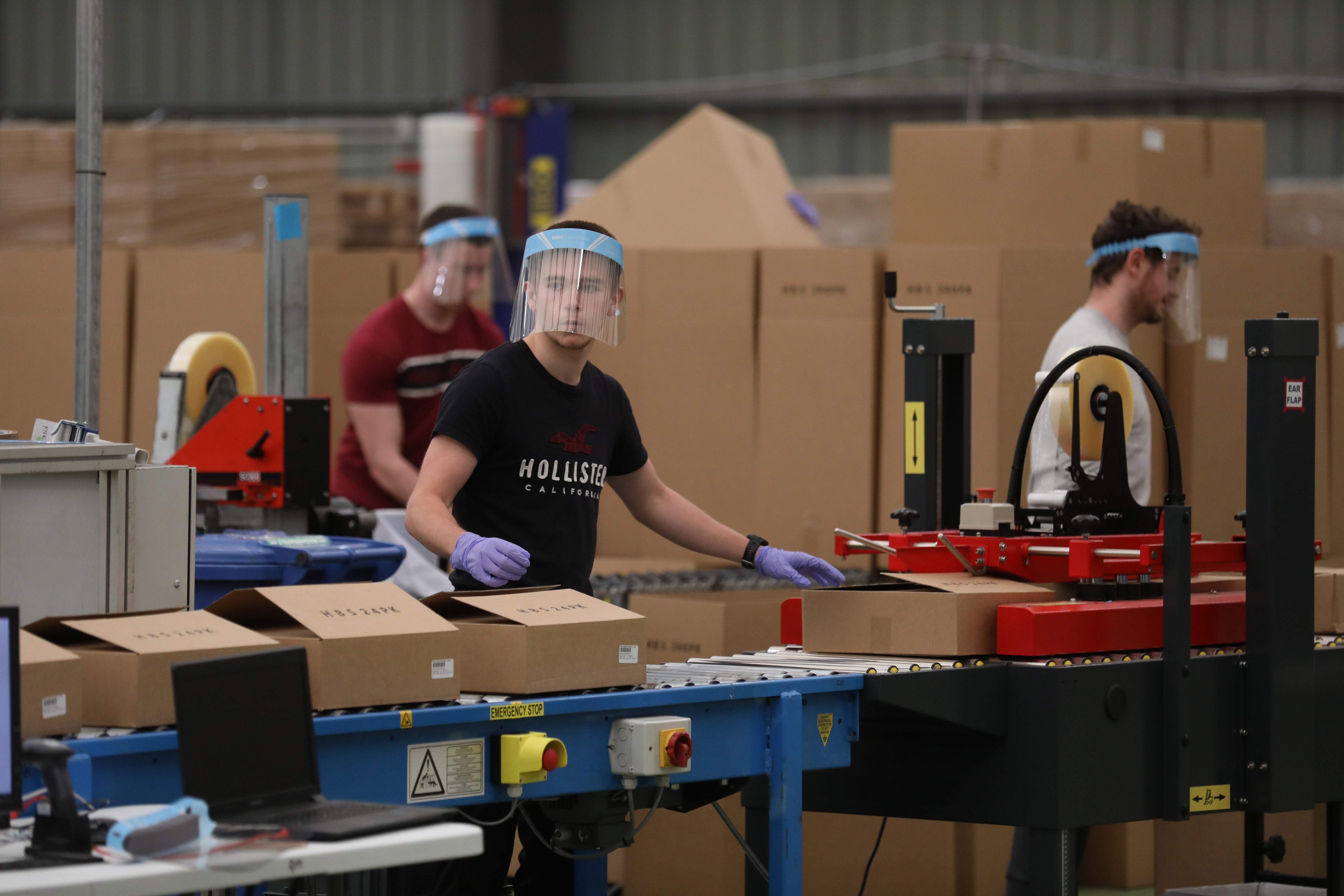National Insurance rise could hit investment, business body warns
Make UK said the return to manufacturing growth could be undermined by the proposal.

Your support helps us to tell the story
From reproductive rights to climate change to Big Tech, The Independent is on the ground when the story is developing. Whether it's investigating the financials of Elon Musk's pro-Trump PAC or producing our latest documentary, 'The A Word', which shines a light on the American women fighting for reproductive rights, we know how important it is to parse out the facts from the messaging.
At such a critical moment in US history, we need reporters on the ground. Your donation allows us to keep sending journalists to speak to both sides of the story.
The Independent is trusted by Americans across the entire political spectrum. And unlike many other quality news outlets, we choose not to lock Americans out of our reporting and analysis with paywalls. We believe quality journalism should be available to everyone, paid for by those who can afford it.
Your support makes all the difference.Manufacturers are reporting an increase in business growth but warn the planned rise in National Insurance threatens to “choke off” investment and recruitment.
Domestic and export orders have increased in recent months with increased optimism for the year ahead, according to manufacturers’ organisation Make UK.
Manufacturing growth is now forecast to be 7.1% this year following a 10% decline in output in 2020.
The manufacturers’ organisation said the sector is now set to recover almost all that loss in 2021, with growth based on a surge in both domestic and overseas orders which is now translating into strong hiring intentions.
The recent increase in National Insurance was the last thing that industry needed, especially when firms need capital to invest and hire
Domestic orders remain stronger than export orders, suggesting there remains some impact on trade with the EU, said the report.
Make UK criticised the increase in National Insurance contributions and warned the plans threaten the prospects for recruitment, especially for young people.
The report stressed the positive figures were reflecting a recovery from a very low base of record falls in output in 2020, adding that supply chain disruption and significant labour shortages are now widely evident which could impact on growth prospects for some companies through the rest of the year.
Stephen Phipson, chief executive of Make UK, said: “Growth prospects continue to accelerate for manufacturers as economies at home and abroad continue to open up.
“However, supply chain shortages and the rapidly escalating increase in shipping costs are threatening to put roadblocks on the road to faster growth despite the current optimism.
Increasing costs, rising inflation and the ongoing battle to attract and retain skilled workers despite positive recruitment intentions will continue to stress-test UK makers for the remainder of the year
“Furthermore, after surviving an 18-month pandemic, the recent increase in National Insurance was the last thing that industry needed, especially when firms need capital to invest and hire.
“Government should be putting in place measures to protect jobs and incentivise recruitment, especially for younger people.”
Richard Austin, of business advisory firm BDO which helped with the report, said: “The improved levels of investment we have seen for the second quarter in a row are hugely positive and are indicative of an industry that is confident of a future worth investing in.
“It feels like manufacturers are finally able to build some momentum, however the new levy has the potential to disrupt plans.
“Manufacturers have proved their resilience over and over again, but big challenges remain.
“Increasing costs, rising inflation and the ongoing battle to attract and retain skilled workers despite positive recruitment intentions will continue to stress-test UK makers for the remainder of the year.”